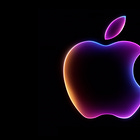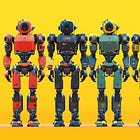Sync #491
ChatGPT Search and Apple Intelligence are out; Waymo raises $5.6 billion; whispers of Gemini 2; new videos of humanoid robots doing things; and more!
Hello and welcome to Sync #491!
We have a packed issue this week. Apple Intelligence and ChatGPT Search are out, and xAI is looking for another multi-billion funding round. Meanwhile, first rumours about Gemini 2.0, which could be released by December, have emerged. We will also look at the AI investment boom, a paper demonstrating that large language models don’t perform formal reasoning, and take a look inside a modern AI supercluster.
In robotics, Waymo has raised $5.6 billion, and Zoox is bringing its robotaxis to San Francisco. We also have a bunch of new videos of humanoid robots in action, including robots from Boston Dynamics and Agility Robotics.
We’ll finish this week’s issue of Sync with companies that make food out of thin air and the story of how Intel got left behind in the AI chip boom.
Enjoy!
If you enjoy this post, please click the ❤️ button or share it.
Do you like my work? Consider becoming a paying subscriber to support it
For those who prefer to make a one-off donation, you can 'buy me a coffee' via Ko-fi. Every coffee bought is a generous support towards the work put into this newsletter.
Your support, in any form, is deeply appreciated and goes a long way in keeping this newsletter alive and thriving.
🧠 Artificial Intelligence
Report: Google targeting December launch for Gemini 2.0
According to a report by The Verge, Google is gearing up to release Gemini 2.0, the new version of its large language model, in December, one year after the first version of Gemini was released. Few details have been revealed, other than reports that it apparently falls short of expectations.
Apple Intelligence is available now on iPhone, iPad, and Mac
Apple released Apple Intelligence this week, or at least the first set of AI-powered features, for iPhones, iPads, and Macs, with iOS 18.1, iPadOS 18.1, and macOS Sequoia 15.1. These features include an updated Siri, enhanced writing tools, notification summaries, a photo cleanup tool, and more. Additional features, such as ChatGPT integration with Siri, enhanced writing tools, and Visual Intelligence, are planned for release in December. Currently, Apple Intelligence is available only in US English and can be accessed in most regions around the world when the device and Siri language are set to US English, according to Apple. Support for additional languages is expected in December this year, with support for more languages rolling out throughout the next year. Apple Intelligence is available on iPhone 16, iPhone 16 Plus, iPhone 16 Pro, iPhone 16 Pro Max, iPhone 15 Pro, iPhone 15 Pro Max, iPads with A17 Pro or M1 and later, and Macs with M1 and later.
Introducing ChatGPT search
ChatGPT Search, OpenAI’s AI-powered search tool within ChatGPT to provide up-to-date answers on various topics by sourcing information from the web, is out. ChatGPT Search can retrieve live information such as sports scores, news, and stock quotes, along with relevant photos and links to sources. Users can ask follow-up questions to refine their search. ChatGPT Search is available for ChatGPT Plus and Team users, and will soon be accessible to enterprise, educational customers, and eventually free users in the coming months.
Elon Musk’s xAI in Talks to Raise Funding Valuing It at $40 Billion
Elon Musk’s xAI is seeking a new funding round that could value it at around $40 billion, up from $24 billion earlier this year. The company hopes to raise several billion dollars, though talks are still in the early stages.
Nvidia to join Dow Jones Industrial Average, replacing rival chipmaker Intel
On November 8th, Nvidia will replace Intel in the Dow Jones Industrial Average, reflecting Nvidia’s rise as a leader in AI and shifts in the semiconductor industry. Nvidia’s shares have surged over 170% in 2024 after a 240% rise in 2023, largely due to its success in the AI chip market. In contrast, Intel has struggled, with its stock down over 50% this year due to manufacturing issues and competition. The Dow Jones index has gradually increased its exposure to major technology firms, with Nvidia’s inclusion marking the latest adjustment by the committee from S&P Dow Jones Indices.
▶️ The Coming AI Startup Bust (13:18)
Are we in an AI startup bubble? According to Jon Y from Asianometry, yes, we are. In this video, Jon provides evidence to support this claim, citing funding rounds in the hundreds of millions of dollars that elevate AI startups to billion-dollar valuations despite lacking solid revenue or unique offerings. For some of these startups, their valuation exceeds revenue by a factor of 100x or more. Jon also draws comparisons to past tech bubbles, such as the hard disk drive industry in 1970s and 1980s, and the streaming bubble a couple of years ago, where high competition and easy replication led to a burst after initial rapid growth. However, despite the risks, Jon sees value in the AI investment boom, viewing it as a natural selection process where some innovations may endure and drive significant technological advancements. As he says, the AI bubble will burst, but “it’s going to be ok in the end.”
The AI Investment Boom
In this post,
Google to develop AI that takes over computers, The Information reports
According to a report by The Information, Google is planning to release its own software that allows an AI agent to take control of a user’s computer. Known internally as Project Jarvis, it could be launched as soon as December, alongside the next version of Google’s flagship Gemini large language model. This new feature aligns with a broader trend of tech companies developing AI agents that can view users’ screens and take actions on their behalf. Microsoft unveiled Recall a couple of months ago, raising concerns about such tools' security and privacy. Apple is planning to introduce something similar with the new, upgraded Siri, and Anthropic recently released Computer Use for developers to include AIs that take control over computers in their products and services.
Microsoft just delayed Recall again
Microsoft has once again delayed the release of Recall, its controversial feature that captures screenshots of nearly everything viewed or done on a Copilot Plus PC, feeding this data into a local AI model to allow users to search and retrieve things they have seen. Recall faced strong opposition, with many experts raising security and privacy concerns, prompting Microsoft to overhaul the feature, making it optional, fully removable, and secured with Windows Hello authentication. Initially planned for June, then postponed to October, Recall is now expected to be released for preview by December for Windows Insiders on Copilot Plus PCs.
Researchers say an AI-powered transcription tool used in hospitals invents things no one ever said
Whisper is a very popular speech-to-text model from OpenAI. In the last month alone, it was downloaded over 4.2 million times from HuggingFace, making it the most popular open-source speech recognition model used in many applications, from call centres to voice assistants. However, Whisper has a tendency to hallucinate, generating words or phrases that were not actually spoken. According to recent research, 8 out of 10 audio transcriptions contained hallucinations, while another research found that nearly 40% of the hallucinations were harmful or concerning because the speaker could be misinterpreted or misrepresented. Despite OpenAI's warning against using Whisper in high-risk fields, it is being adopted in medical settings to document patient interactions, raising concerns over the reliability of transcriptions and patient privacy. Experts and former OpenAI staff urge the company to address these issues, and some advocate for federal regulation to ensure accuracy, particularly as the tool is embedded in widely used platforms and services.
Polish radio station ditches DJs, journalists for AI-generated college kids
OFF Radio Kraków, a local radio station in Kraków, Poland, has replaced its on-air talent with AI hosts. Each AI host, named "Emi," "Kuba," and "Alex," has a distinctive personality and leads the broadcasts, but the actual content is created and verified by human journalists, including text, sound, and music programming. One of the station's first projects with the AI hosts was an interview with the deceased Nobel Prize-winning poet Wisława Szymborska (reportedly done with consent). The station’s shift to AI followed the termination of several on-air contributors, sparking criticism from former broadcasters, who argued that AI threatens jobs in creative industries. The AI-based format at OFF Radio Kraków is experimental and planned to last no longer than three months, after which it will be evaluated for effectiveness.
▶️ Inside the World's Largest AI Supercluster xAI Colossus (15:00)
Patrick from ServeTheHome had the opportunity to visit xAI’s supercomputer, the largest supercomputer built for AI. I highly recommend checking it out if you’re interested in seeing what an AI supercluster looks like, how those 100,000 GPUs are connected, and the kind of supporting infrastructure (networking, storage, cooling, etc.) needed to run a supercluster at this scale. Also, cable management there is something to aspire to.
Google CEO says more than a quarter of the company's new code is created by AI
During Alphabet’s Q3 earnings call, Sundar Pichai revealed that over 25% of new code at Google is now generated by AI. "This helps our engineers do more and move faster," Pichai said. However, human coders are still required to check and review the AI-generated code before it is released. The article also mentions an internal AI model at Google, codenamed Goose, trained on “25 years of engineering expertise at Google” to help employees code and build products.
GitHub Copilot moves beyond OpenAI models to support Claude 3.5, Gemini
GitHub Copilot, an AI coding assistant offered by GitHub, will support models beyond OpenAI’s GPT models. Initially, Anthropic's Claude 3.5 Sonnet will be added, followed by Google’s Gemini 1.5 Pro. Additional OpenAI models, such as GPT o1-preview and o1-mini, will also be supported. Users will be able to switch between models mid-conversation to suit specific tasks, as different models excel at different programming languages or tasks. GitHub aims to extend this approach to various Copilot features, such as Workspace, code review, security fixes, and CLI functions.
LLMs don’t do formal reasoning
In this post,
If you're enjoying the insights and perspectives shared in the Humanity Redefined newsletter, why not spread the word?
🤖 Robotics
Alphabet’s self-driving unit Waymo closes $5.6 billion funding round as robotaxi race heats up in the U.S.
Waymo has raised $5.6 billion in a Series C funding round, led by Alphabet and supported by other investors like Andreessen Horowitz, Fidelity, and Tiger Global. This brings Waymo’s total funding to over $11 billion, with Alphabet pledging up to an additional $5 billion over multiple years. Waymo plans to use the new funding to expand its robotaxi services in current markets—Los Angeles, San Francisco, and Phoenix—and to new areas, including Austin and Atlanta through a partnership with Uber.
Zoox custom robotaxis are finally coming to San Francisco and Las Vegas
Zoox, an Amazon-owned robotaxi company, is set to deploy dozens of its purpose-built autonomous vehicles and start offering rides—initially for its employees—in San Francisco’s SoMa neighbourhood and on the Las Vegas Strip in the coming weeks. Starting in Las Vegas in early 2025, Zoox will launch an “explorer” programme, offering early riders free access to the robotaxis before transitioning to a paid public service.
Boston Dynamics released a new video of an all-electric Atlas moving engine covers from one place to another in a way no human would. I think this demo is a part of preparing Atlas for trials in a real factory, possibly at Hyundai, given that Boston Dynamics is now part of the Hyundai Motor Group. There’s also a Halloween version of this demo, with Atlas dressed as a giant hot dog.
▶️ Digit's First Day of Work at GXO (1:52)
In this video, Agility Robotics celebrates the first commercial deployment of a humanoid robot by demonstrating how Digit is used at GXO Logistics' warehouse to move boxes from a cart to a conveyor belt.
Chinese humanoid robot is the 'fastest in the world' thanks to its trusty pair of sneakers
It turns out that not only humans run better with the right shoes. The Chinese company Robot Era has proven this by equipping their STAR1 humanoid robot with a pair of sneakers, making it the fastest humanoid robot to date. During tests in the Gobi Desert in northwestern China, STAR1 reached a top speed of 8 mph (3.6 metres per second) and sustained that speed for 34 minutes.
More farms are turning to automation amid labor shortages
Automation in agriculture promises to reduce labour costs, address workforce shortages, protect workers from extreme conditions, and make farms more efficient, environmentally friendly, and productive. This article highlights the mixed reception among farmers: while some embrace automation to save water and reduce costs, others are deterred by high expenses and scepticism about replacing skilled labour. Farmworkers also express concerns about job security and safety, prompting advocates to call for responsible automation that considers both productivity and worker welfare.
🧬 Biotechnology
These companies are creating food out of thin air
Using NASA's 1960s research to create food from bacteria—initially designed for long space missions—some startups imagine a world where food can be made using only air, water, and bacteria that eats CO₂. Companies such as Solar Foods in Finland and Air Protein in the US promise to create a sustainable, renewable food source with bacteria that requires less land and water than traditional agriculture and can operate in various climates, making it a potentially transformative, low-emission solution as global protein demand rises.
💡Tangents
How Intel Got Left Behind in the A.I. Chip Boom
Intel’s fall from its position as the king of semiconductors to one of the biggest losers of the AI boom will be studied for years in business schools. This article from The New York Times recounts Intel’s decline through its failed attempts to enter the graphics and AI chip markets. The story begins in 2005, when Intel passed on the chance to acquire Nvidia for $20 billion, and follows a series of missed opportunities, poor decisions, and flawed execution that led to the present—where Nvidia is valued at roughly 30 times more than Intel, and Intel’s CEO admitting that “we’re just not going to be competing anytime soon.”
Thanks for reading. If you enjoyed this post, please click the ❤️ button or share it.
Humanity Redefined sheds light on the bleeding edge of technology and how advancements in AI, robotics, and biotech can usher in abundance, expand humanity's horizons, and redefine what it means to be human.
A big thank you to my paid subscribers, to my Patrons: whmr, Florian, dux, Eric, Preppikoma and Andrew, and to everyone who supports my work on Ko-Fi. Thank you for the support!
My DMs are open to all subscribers. Feel free to drop me a message, share feedback, or just say "hi!"









